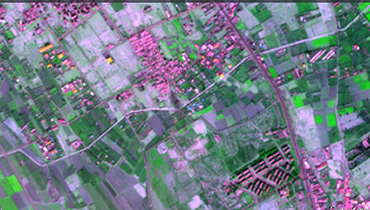2021.- Assessing EU's Progress and Performance with Regard to SDG-12 Targets and Indicators
 |
Título del libro: | Sustainable Production and Consumption Systems. Assessing EU's Progress and Performance with Regard to SDG-12 Targets and Indicators |
| Editores: |
Jean-Vasile Andrei, Marius Constantin, Ignacio de los Ríos Carmenado |
|
| Fecha: | 2021 | |
| Lugar: | Singapur | |
| Editorial: | Springer | |
| ISBN/ISSN: |
Print ISBN: 978-981-16-4759-8 / Online ISBN: 978-981-16-4760-4 |
|
| Enlace: | Pinche aquí |
About the book
Finding a pathway between high levels of economic competitiveness and sustainability is challenging. The global economy has been long-calling for a paradigm shift as far as the consumption and production models have been concerned over the last decades. In this regard, transforming our world to the imperative vision described in the 2030 Agenda for Sustainable Development can be made possible if global markets respond efficiently to the goals and targets set in the 2030 Agenda. Taking this into consideration, business models, production patterns, purchasing and consumption habits represent key elements that are connected to the indictors designed to monitor the progress and performance achieved with regard to the SDG 12: tracking resource management efficiency, the circularity of economic activities, production and consumption footprint and others. Given the importance of quantifying results with the aim of ensuring the timely achievement of the SDG KPIs, the objective of this research was to carry out a synoptic quantitative analysis on EU-27’s progress and performance with regard to the targets and indicators of SDG 12—not only from the perspective of the well-defined methodological framework described in Agenda, but also from the perspective of the scientific results published in the papers specific to the field of sustainable production and consumption patterns. Findings highlight the ongoing ardent transition to a more resource-efficient and circular European economic system. In the race for shifting the production and consumption patterns from the conventional model to the one that has the sustainability factor at its core in the EU-27, the vectors of change proved to be Finland, Austria and Latvia.













